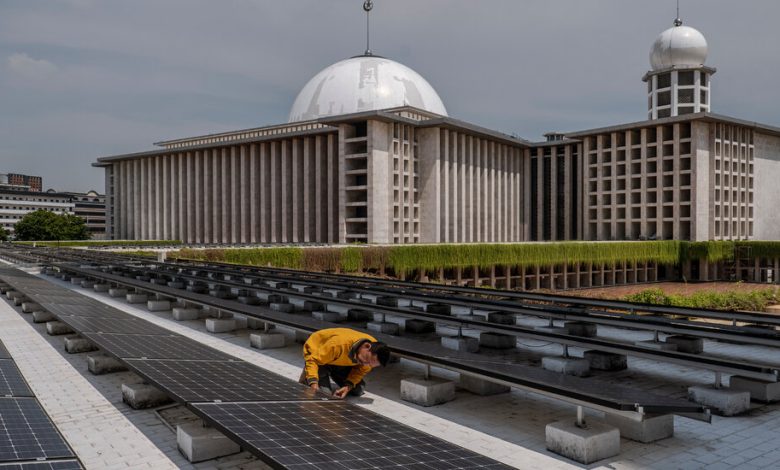What Can ‘Green Islam’ Achieve in the World’s Largest Muslim Country?

The faithful gathered in an imposing modernist building, thousands of men in skullcaps and women in veils sitting shoulder to shoulder. Their leader took to his perch and delivered a stark warning.
“Our fatal shortcomings as human beings have been that we treat the earth as just an object,” Grand Imam Nasaruddin Umar said. “The greedier we are toward nature, the sooner doomsday will arrive.”
Then he prescribed the cure as laid out by their faith, which guides almost a quarter of humanity. Like fasting during Ramadan, it is every Muslim’s Fard al-Ayn, or obligation, to be a guardian of the earth. Like giving alms, his congregants should give waqf, a kind of religious donation, to renewable energy. Like daily prayers, planting trees should be a habit.
The environment is a central theme in the sermons of Mr. Nasaruddin, the influential head of the Istiqlal Mosque in Jakarta, Indonesia, who has tried to lead by example. Dismayed by the trash sullying the river that the mosque sits on, he ordered a cleanup. Shocked by astronomical utility bills, he retrofitted Southeast Asia’s largest mosque with solar panels, slow-flow faucets and a water recycling system — changes that helped make it the first place of worship to win a green building accolade from the World Bank.
The Grand Imam says he is simply following the Prophet Muhammad’s instructions that Muslims should care about nature.

Friday Prayer at the Istiqlal Mosque in December.



